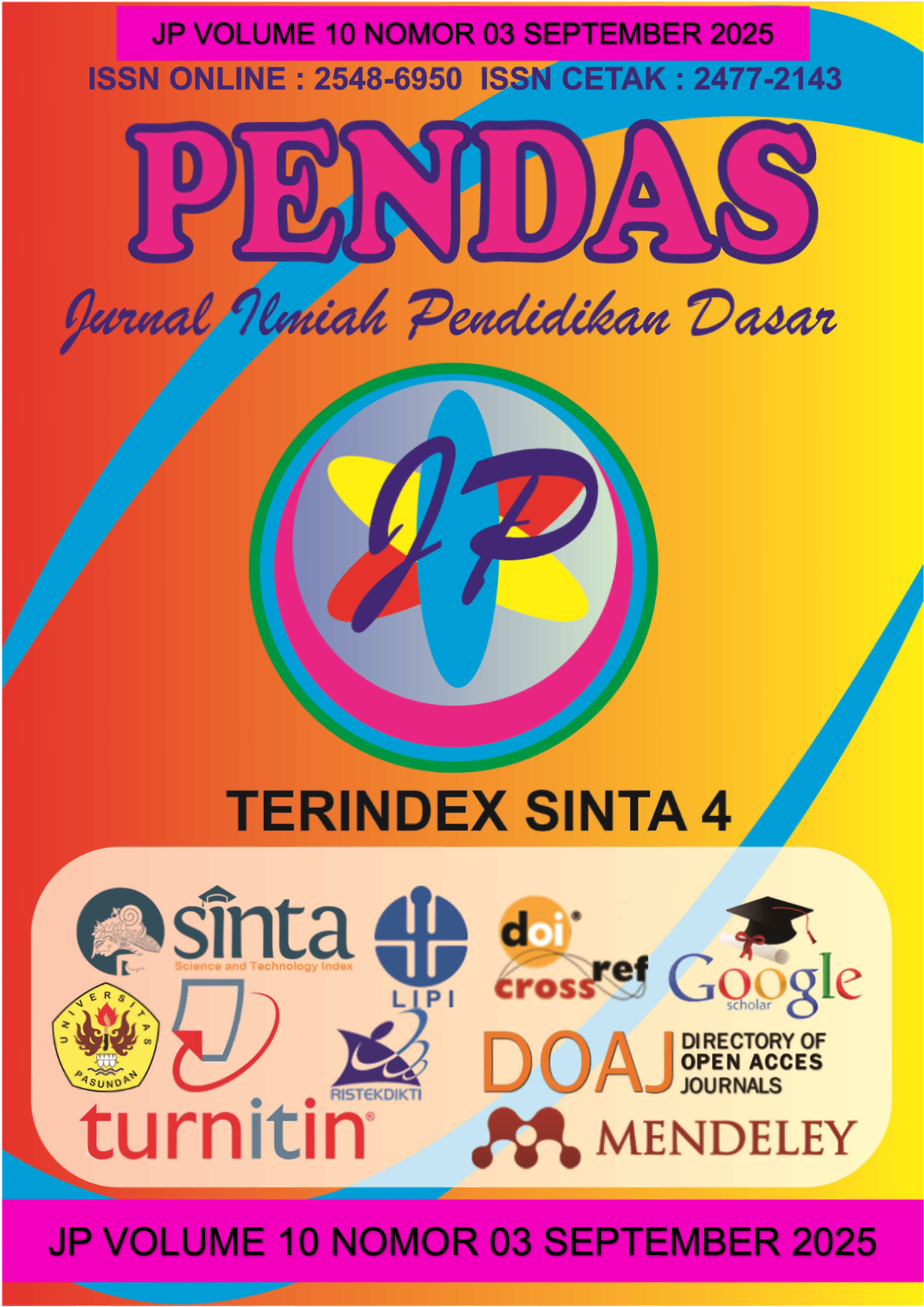ANALISIS KEMAMPUAN PEMECAHAN MASALAH MATEMATIKA SISWA KELAS RENDAH DI SEKOLAH DASAR
DOI:
https://doi.org/10.23969/jp.v10i03.31541Keywords:
problem solving, mathematical literacy, elementary school studentsAbstract
This study aims to describe the mathematical problem-solving abilities of lower-
grade elementary school students, specifically in the number material taught in
Class III at MI Alhuda Rawasapi. The background of this research is the
importance of problem-solving skills in mathematics education as a foundation for
logical, critical, and systematic thinking that supports the understanding and
application of concepts in real-life contexts. This study employs a descriptive
qualitative approach using a case study method. Data were collected through
observation, interviews, and documentation. The results show that students’
problem-solving abilities remain low, marked by various obstacles in the four
stages of Polya’s problem-solving steps: understanding the problem, devising a
plan, carrying out the plan, and reviewing the solution. Furthermore, five types of
errors were identified based on Newman’s error analysis and Rico’s transformation
theory, including errors in reading the problem, understanding the problem,
transforming into mathematical form, carrying out the process, and writing the final
answer. Contributing factors include low mathematical literacy, underdeveloped
abstract thinking skills, and a lack of habits in evaluating their own work. This
study recommends the use of contextual learning approaches and the cultivation
of reflective thinking habits to enhance students’ mathematical problem-solving
skills.
Downloads
References
Jurnal :
Assyakurrohim, Dimas, Dewa Ikhram,
Rusdy A. Sirodj, and M. Win
Afgani. 2023. “Jurnal Pendidikan
Sains Dan Komputer Metode
Studi Kasus Dalam Penelitian
Kualitatif Jurnal Pendidikan
Sains Dan Komputer.” 3(1):1–9.
Ismiasih, Novi. 2023. “Analisis
Kesalahan Siswa Dalam
Menyelesaikan Soal Cerita
Matematika Melalui Tahap
Newman.” 12(2):109–16.
Kurniasih, Imas, and Berlin Sani.
2015. “Model Pembelajaran:
Kata Pena.”
Newman. 1977. “An Error Analysis in
the Early Grades Mathematics –
A Learning Opportunity ?”4(1):42–60.
Polya, George. 1957. “How to Solve
It.”
Rahmawati, Asyifa, and Awan
Kurniawan. 2023. “Meta Analisis:
Pengaruh Realistic Mathematics
Education (RME) Terhadap
Kemampuan Pemecahan
Masalah Matematis Siswa.”
Indiktika: Jurnal Inovasi
Pendidikan Matematika
5(2):233–43.
Rahmawati, Dinda, Aflich Yusnita
Fitrianna, and M. Afrilianto. 2022.
“Penerapan Model PBL
Terhadap Kemampuan
Pemecahan Masalah Matematis
Siswa SMP Kelas VII Pada
Materi Himpunan.” JPMI (Jurnal
Pembelajaran Matematika
Inovatif) 5(6):1725–34.
Ramadhani, Naisya, Putri Imatriyani
Sholekhah, Ade Yolla, and Dliaul
Aulia. 2023. “Analisis
Kemampuan Pemecahan
Masalah Matematis Siswa Kelas
Empat Sd 4 Dersalam Dalam
Menyelesaikan Soal Cerita.”
1(5).
Sudjana. 2021. “Analisis Kemampuan
Pemecahan Masalah Siswa
Dalam Menyelesaikan Soal Pada
Materi Pola Bilangan.”
7(2):272–85.
Sugiyono, P. .. 2019. Metode
Penelitian Kuantitatif, Kualitatif,
Dan R&D.
Suryadi, Didi, and Surya Kurniawan.
2023. “KESALAHAN SISWA
MENYELESAIKAN SOAL
CERITA MATEMATIKA.”
6(2):607–18. doi:
10.22460/jpmi.v6i2.17141.
Yuliani, S, Hartono, R. 2019. “Analisis
Kesalahan Membaca Dan
Memahami Soal Matematika.”
Jurnal Pendidikan Dasar.
Downloads
Published
Issue
Section
License
Copyright (c) 2025 Pendas : Jurnal Ilmiah Pendidikan Dasar

This work is licensed under a Creative Commons Attribution 4.0 International License.



















